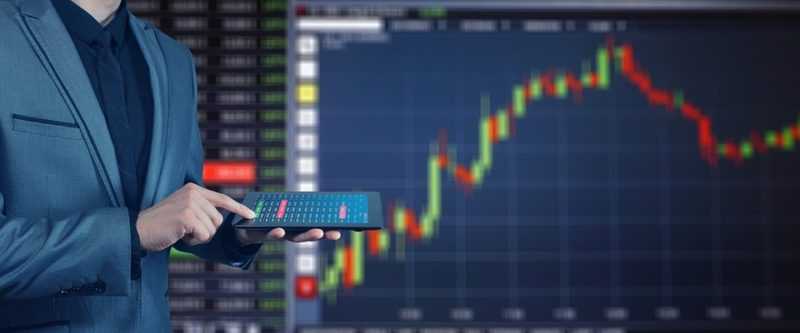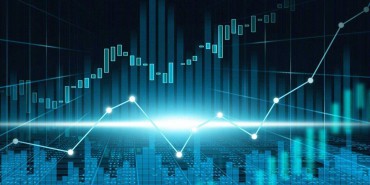Forex Educational Series

by Hans Stam

As a Forex Trader, I would like to create a series of short explanations about how this market works. What are the pros and cons etc?
My aim is to make this as clear as possible, so you can follow the process step by step.
What is Forex?
Forex (FX) is the abbreviation for Foreign Exchange.
When you travel to another country, you may want to exchange your local currency to the currency of the country you’re traveling to.
At the bank or airport, you can exchange your money into the currency used in the country you are heading.
The exchange office works with an exchange rate, depending on the current value of both currencies of a “pair”.
A Pair is, for example, a euro against a US dollar which would be the EUR/USD pair, where the EUR is the base currency, and the USD the quote or counter currency.
EUR/USD – Base / Counter
At the end of your trip, you like to exchange the remaining funds again, back to your currency.
Again, the exchange rate can be changed as it is constantly changing.
So it could be very possible that you will get more value back compared to when you first exchanged it, or a lot less value.
The excitement of Forex trading
This exchange can make or lose you money, and that is very interesting to investors, especially the part where the trader can make money of course.
Just like stocks, currency can be traded on the Market, and you don’t have to go to an exchange office to do it.
So what makes Forex different from trading stocks?
First of all, you don’t have to find a buyer for the trade you are holding, you can close the trade any time you want and instantly get the current value credited back to your trading account.
The second main difference is, leverage!
For instance, the broker gives the trader a 1:100 Ratio with your broker, which means you can trade 100 times the value you pay for.
An example would be trading the Pair EUR/USD and you would buy 10.000 Euro’s, the broker will then take 100 Euro’s locked in your account while you trade the exchange rate over 10.000 euro.
It’s easy to understand you can make far more profit over 10.000 euro, than over 100 euro.
When the market goes your way
Now, when the market goes your way, and close the trade to take the profit, you get the initial 100 euro credited back into your account. So all that happened was that you win or lose the price difference from where you entered the trade to where you closed the trade over 10.000 euro.
It’s logical that when you take profits over 10.000, you make a high percentage on 100 initial deposit.
This goes both ways, so it can be risky, but the rewards can also be a very nice ROI (Return on Investment)
If you like to find out more about how you can enter this market, please visit my page.
Can you really make a living trading the Forex Market?
That is a question I’m getting a lot, so I will try to give some clarity.
The exact percentage of the people who really make a consistent profit is low.
Some speak of a top 5% and that is going as low as a top 1%.
What most traders will agree on is that the number is low whatever that percentage might be.
So how come many people are still trading this market and how come so many are struggling?
The first answer on to why so many people still have an attraction to this market is that it’s possible to make a lot of money really quick, on the other hand, they can lose it just as fast.
But in the end it is very simple, you either are right in the direction your trade will go, or not.
I will elaborate in later articles some more about market directions, but this is the basis of all trading.
The trader buys or sells at a specific price, hoping the counter currency will have a positive price change for their trade.
Forex isn’t the same as gambling
Some traders are hooked on the possibility of great profits, and you could compare it to Las Vegas Casinos, and it can be very addictive.
So that it the why people keep on trying, it’s like gold fever or putting your money on Black or Red in a Casino.
Second, why are so many people struggling with this fairly simple way of trading?
The biggest reasons are emotions and lack of knowledge which basically makes it like gambling.
The lack of knowledge speaks for itself, but how about emotions?
Many struggling traders have fear of loss and get excited too quickly when they are winning.
It’s usually when people are doubting a strategy they bought or came up with themselves and experience fear of losing.
When they see the trade going against them, they let the trade go really deep, but when the trade finally goes their way, they can’t wait to take the profit and have that excitement produce an adrenaline kick.
The strategies can be altered
Often strategies are altered, without really knowing why, but if they had that strategy a bit different on the last trade, then their loss would have been profitable in their mind, forgetting the trade would probably have been closed well before it matured.
Hindsight trading has been used a lot with this type of trader, and that doesn’t count.
The top percentage of the traders who make a consistent profit have learned to do things differently, and it would be wise for traders to have a mentor who knows where the pitfalls are.
Also, it is typical for this kind of gambling trader to put in a few hundred dollars, while in reality, the minimum should be at least $5.000 just to have a buffer.
Once a trade goes against the direction desired, it will need some breathing space. The bigger the buffer, the longer you can keep the trade open.
Fact is, you will not lose a trade until you take the loss, or when you run out of margin. So part of that is a decision, the other part financial.
If you like to find out more about strategies or have specific questions, please visit my page.
I hope this short explanation has your peaked interest, and it is clear to you how the basics work.
In the next article, I will go deeper into some facets of trading the FX Market and its terminology.
Make sure to bookmark this page, and come back to read more soon.



Leave a Reply